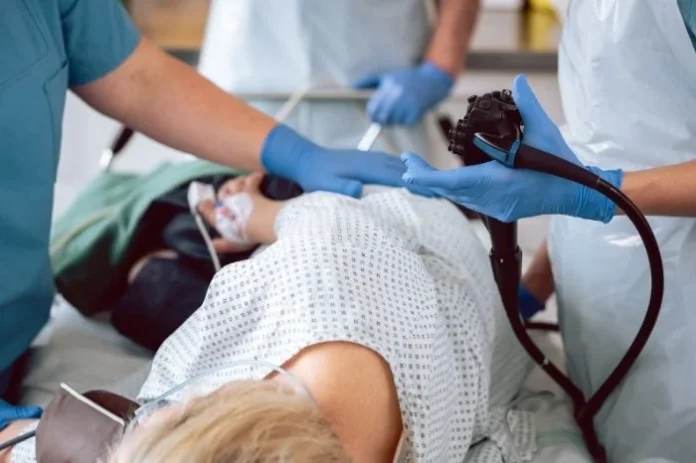Hearing that you need a colonoscopy or endoscopy might make you feel uneasy. It’s completely normal to feel anxious before a medical procedure. These procedures allow doctors to see inside your digestive system and identify issues that routine tests might miss. Understanding what happens before, during, and after will help you feel calm, confident, and ready for your appointment.
Why Colonoscopy and Endoscopy Are Important
Colonoscopy and endoscopy are valuable tools that help doctors check for problems inside your digestive tract. A colonoscopy examines your large intestine and rectum, while an endoscopy focuses on the upper digestive system, including your throat, stomach, and small intestine. They allow your doctor to see what’s happening in real time through a lighted scope connected to a video monitor, and if needed, take small tissue samples for testing.
If you’re planning a colonoscopy Singapore, you’ll find many hospitals and clinics that offer specialized endoscopy services. Most have experienced gastroenterologists and nurses who make the process comfortable and safe. It’s a routine colonoscopy procedure, done every day for people who want clarity about their digestive health and peace of mind.
You don’t need to be sick to have one. Doctors often recommend these procedures as screening tests for early signs of colorectal cancer, especially for adults over 45 or anyone with a family history of gastrointestinal issues. It’s about being proactive and taking steps toward long-term wellness.
Preparing in the Days Before
Preparation starts a few days before your appointment. Your doctor will give you detailed instructions, but in general, you’ll need to switch to a low-fiber diet or colonoscopy prep diet. That means skipping foods with seeds, nuts, or whole grains that can linger in your system. Keeping your digestive tract clear helps your doctor see things more accurately during the procedure.
Stay hydrated by drinking plenty of water or clear fluids. Many people find it easier to sip broth, tea, or even a little apple juice throughout the day. Avoid dark-colored beverages, such as coffee or grape juice, since those could make the lining harder to see. A gentle, balanced fluid intake keeps you hydrated and supports your body’s natural preparation.
If you take daily medication, check with your doctor about any changes you might need to make before your procedure. Some medicines, like blood thinners or iron supplements, may need to be adjusted for safety. Your primary care doctor will guide you on what’s best based on your medical history and current treatment plan.
The Bowel Preparation
If you’re having a colonoscopy, bowel preparation is one of the most important steps. It clears out your intestines so the doctor has a clear view. You’ll be given a laxative solution designed for complete bowel cleansing, which you’ll drink at specific times before your appointment. It’s not anyone’s favorite part, but it’s necessary to ensure accurate results.
Once you start, you’ll need to stay close to a restroom. You might feel some cramping or urgency, but that means it’s working. Try to drink the prep slowly instead of all at once, and chilling it in the fridge can help with the taste. Keep soft tissue and a gentle barrier cream on hand to reduce irritation from frequent trips to the bathroom.
A clean bowel makes all the difference in how effective and quick the procedure is. This step helps your doctor identify even small polyps or signs of inflammatory GI disease that might otherwise go unnoticed. Think of it as doing your part to make the examination as precise as possible.
What Happens on the Day
On the day of your appointment, wear loose, comfortable clothing and leave jewelry or makeup at home. You’ll check in early so the staff can review your details, take your vitals, and explain what will happen. During an endoscopy, you may receive a throat spray that numbs the area and helps prevent gagging, while the medical team ensures your respiratory health and comfort throughout.
You’ll be given a light sedative through an IV to help you relax. Most people feel drowsy and don’t remember much of the procedure. The medical team will monitor your breathing and heart rate the entire time to keep you safe. These precautions ensure your body responds well from start to finish.
The procedure usually takes less than an hour. Afterwards, you’ll rest in a recovery area until the sedation wears off. You may feel slightly bloated or sleepy, which fades as the medication leaves your system. If you notice any flu-like symptoms later in the day, such as fatigue or mild body aches, let your doctor know so they can advise you appropriately.
What To Expect After
Once you’re home, take time to rest and allow your body to recover. You might feel some gas or bloating for a few hours, which happens when air is used to expand the digestive tract during the procedure. Gentle movement, such as short walks, can help release the air more quickly. You’ll start feeling back to normal before long.
Eat light meals for the first day. Soups, soft bread, and yogurt are easy on the stomach and support gentle digestion. Avoid spicy or greasy foods until your appetite feels stable again. Following these steps helps you recover comfortably and supports overall digestive health.
Your doctor will either discuss the findings with you right away or schedule a follow-up visit. If any tissue samples were taken, results usually take a few days. Waiting for results can make anyone uneasy, but remember that most findings turn out to be minor or treatable with the right care.
Tips To Make It Easier
Good preparation is both mental and physical. Knowing what to expect helps you stay calm and organized. Before you begin your bowel prep, set up a comfortable space with everything you need within reach. Keep extra clear fluids, soft wipes, and light reading material nearby to pass the time.
If you work, try to schedule your procedure early in the week so you can rest afterwards without disrupting your weekend. Have someone ready to accompany you home and check on you later that day. Planning small details ahead of time makes the entire process feel less stressful.
Ask questions whenever you’re unsure about something. It’s always better to get clear answers from your doctor than to wonder or assume. Understanding each step gives you a sense of control and helps you approach the day with confidence.
Common Questions and Concerns
It’s normal to wonder how soon you can go back to normal life. Most people return to work or daily activities the next day. If you feel tired or light-headed, take an extra day to rest. The key is to avoid heavy lifting or exercise until you’re fully alert and hydrated again.
Mild discomfort is common, but if you experience persistent pain, fever, or bleeding, contact your doctor right away. These symptoms are rare, but they should always be checked.
Feeling nervous while waiting for results is completely understandable. Some people may even experience anxiety attacks during this period, especially if they’ve been worried about their health for some time. Keeping busy can help ease that tension. Watch something light, spend time with people you enjoy, or do a small activity that enables you to relax. Focusing on recovery instead of worry can make the waiting period easier.
Final Thoughts
A colonoscopy or endoscopy might sound intimidating at first, but they’re routine procedures that give doctors valuable information about your health. With proper preparation, the process is usually smooth and uneventful. Follow your doctor’s instructions carefully, stay hydrated, and allow yourself time to rest afterwards. The more informed you are, the more comfortable you’ll feel before, during, and after your appointment.





